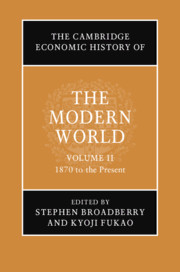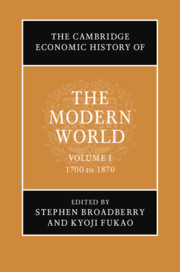2 results in The Cambridge Economic History of the Modern World

The Cambridge Economic History of the Modern World
-
- Published online:
- 03 June 2021
- Print publication:
- 24 June 2021

The Cambridge Economic History of the Modern World
-
- Published online:
- 03 June 2021
- Print publication:
- 24 June 2021

